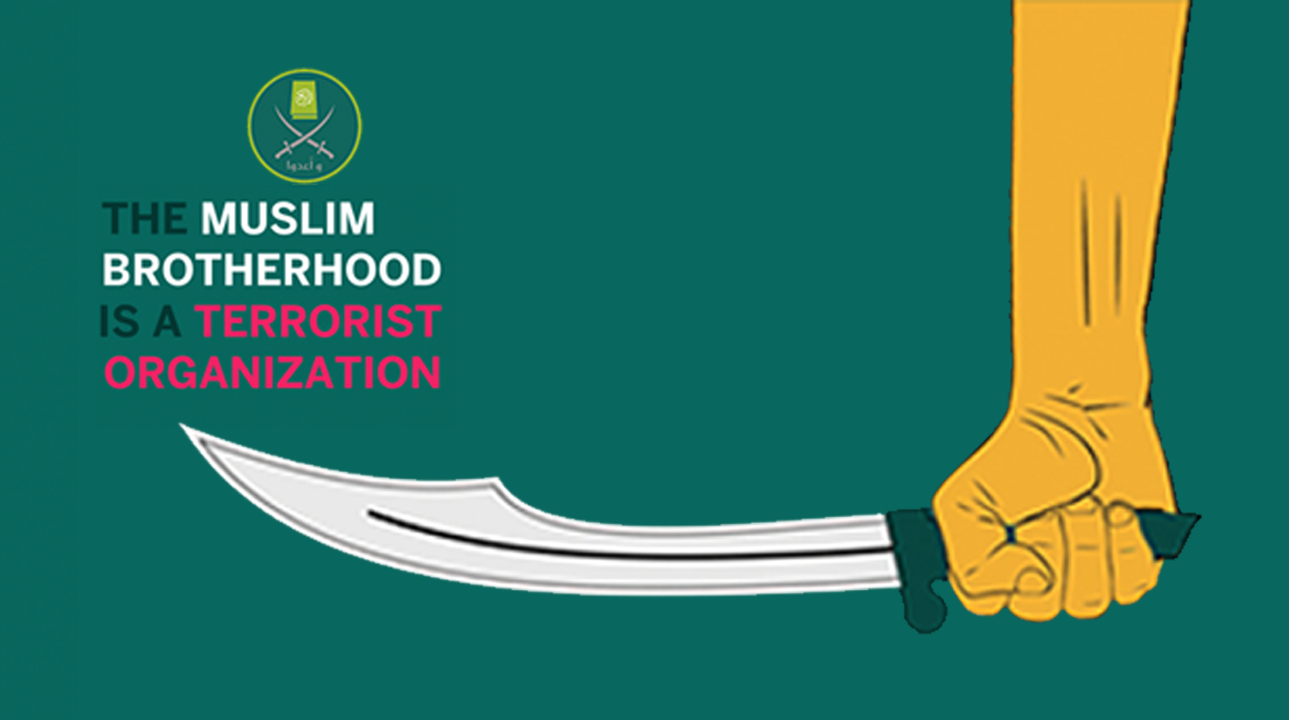Dreams of the Caliphate
The Muslim Brotherhood was established in Egypt in 1928 in order to restore the lost caliphate.
A ‘caliphate’ is an Islamic form of government headed by a caliph. Sunni Muslims believe that the caliph should be elected from among the best clerics in the Islamic world. Shia Muslims, on the other hand, believe the caliph must be from the direct bloodline of Mohammed.
There have been a number of caliphates since the establishment of the first caliph shortly after the death of Mohammed. However, the leadership of the caliphate fell to the Ottoman Turks in the sixteenth century. For hundreds of years, the sultans of the Ottoman empire claimed the title ‘caliph,’ but after the First World War the Ottoman Empire was destroyed.
The question of what would happen to the caliphate lingered until 1924, when the Turkish leader Attaturk abolished the caliphate as part of a series of modernizing reforms designed to tie the new Turkey to the West.
In addition to the elimination of the by-then ceremonial title of ‘caliph,’ Attaturk suppressed Islamic identity and shariah law. He banned the growing of long beards by men, the wearing of headscarves by women, and the call to prayer from being broadcast from mosques into the street.
Islamic traditionalists were appalled by these reforms, and four years later one of them created an organization whose purpose was to overthrow modernizing governments in the Islamic world and restore shariah law. This traditionalist’s name was Hassan al Banna.
Hassan al Banna
Al Banna was the son of a Muslim cleric who lived outside of Cairo. His father, Ahmad abd al-Rahman al-Banna al-Sa’ati, was an important figure in the Hanbali tradition of Islam. He insured that his sons had an extensive religious education, and that they lived in an intensely Islamic home environment.
The younger al Banna also became an imam. He was greatly inspired by the Egyptian revolution of 1919, a successful revolt against British authority by Egyptians that wrested leadership of Egypt away from a Western power.
He founded al-Ikhwan al-Muslimin – literally ‘the Muslim Brotherhood’ – in 1928. It had a similar but broader revolutionary goal: to expel Western powers and their influence from the whole Islamic world, and to institute not a new revolutionary government but a restored caliphate under shariah law.
From 1928 to Partnership with the Nazis
Al Banna became involved through his father’s efforts with the Young Men’s Muslim Association and the Islamic Society for the Nobility of Islamic Morals. These were cultural organizations that provided him with early connections to other young men inspired to live an intensely Islamic life.
It was out of these ties that he built the foundations of the Brotherhood, which was not a cultural or religious organization – those existed already – but a political organization designed to effect revolutionary change.
By the late 1930s, as the Second World War was beginning, the Brotherhood had expanded to every province in Egypt. The war brought Western troops into Egypt, as indeed it created new incursions by British and German forces across the Islamic world. Reaction against these new incursions by the West caused the Brotherhood’s numbers to balloon.
The Brotherhood began to organize itself into “Battalions” of men with special training both spiritual and physical. By 1940, it established a “special apparatus” to serve as its military wing.
The “special apparatus” replaced the Battalions in 1943. Not coincidentally, this shift from regular to unconventional warfare followed Rommel’s defeat in late 1942 and the subsequent Allied conquest of Egypt. The Brotherhood, which had developed a relationship with the Nazis, conducted unconventional warfare operations against Allied forces led by their old enemies the British.
"Special Chapters" & the MB's Covert Ops
The “special apparatus” approach survived the war, and is today known as the “Special Chapter.” This military wing of the Brotherhood conducts “special work” operations of a clandestine or covert nature as part of the Brotherhood’s continuing mission.
The Brotherhood worked after the war to call for the removal of all British forces, which it referred to as “non-Muslim Forces,” from what it referred to as “Muslim Lands.” In addition to political organizing, its special chapter carried out a program of assassination targeting Egyptian officials, British soldiers, and their families.
Following the assassination of the Egyptian Prime Minister in December 1948, the Egyptian government killed Hassan al Banna. This marked an intensification of the war between the Brotherhood and the government in Egypt. The Brotherhood was banned as a terrorist organization for several years, during which time it waged war on the Egyptian monarchy and its British allies.
The Brotherhood was instrumental in the overthrow of that monarchy in 1951, after which their allies among Nasser’s party lifted the ban on them. Their re-emergence as a legal organization lasted a very short time: by 1954, Nasser himself was their target, and a crackdown ensued as a new war blossomed between his government and their movement.
The Brotherhood waged unconventional war to overthrow an Egyptian government that was still too Western for them, with the continual goal of re-establishing the caliphate and restoring shariah law. This would last for decades.
Terrorism & Success in Egypt
The Brotherhood after 1954 continued underground political organizations combined with “special work” as a means of achieving its long-term goal of restoring the caliphate and establishing shariah law.
Its model proved somewhat successful, inspiring the development of allied groups with similar models such as Hamas.
In 2011, a revolution in Egypt created an opening for democratic reforms, and the Muslim Brotherhood – temporarily not considered a terrorist organization because the government of Egypt had fallen – was able to get its leaders elected to the government of Egypt. President Mohammed Morsi, a Brotherhood leader, lasted only a year before his abuses in power caused the Egyptian army to drive him from office.
He had ‘temporarily’ granted himself the right to legislate without opposition or review, and attempted to impose an Islamist constitution on Egypt without popular consent. Morsi’s government used Brotherhood-organized gangs to break up popular protests against these moves with serious violence.
He and his comrades were turned over to the courts, where he and many of them were found guilty of high crimes against the people of Egypt. Those like Morsi who were sentenced to death are awaiting the outcomes of their court appeals.
The Muslim Brotherhood Today
Today the Brotherhood is recognized as a terrorist organization by many governments in the Middle East, including Egypt. These include America’s Gulf State allies, but also Russia and Syria. The Brotherhood’s bylaws continue to proclaim its goals and methods, which have not changed. Of particular interest:
“The Muslim Brotherhood is an International Muslim body which seeks to establish Allah’s law in the land by achieving the spiritual goals of Islam and the true religion which are namely the following: . . . (F) the need to work on establishing the Islamic State; [and] (G) The sincere support for a global cooperation in accordance with the provisions of the Islamic Sharia.”
Also:
“The Muslim Brotherhood in achieving these objectives depends on the following means: . . . (D) Make every effort for the establishment of educational, social, economic, and scientific institutions and the establishment of mosques, schools, clinics, shelters, clubs, as well as the formation of committees to regulate zakat affairs and alms; (E) The Islamic nation must be fully prepared to fight the tyrants and the enemies of Allah as a prelude to establishing the Islamic state.”
It remains devoted to the combination of political organizing backed by “special work.” As demonstrated repeatedly through its history, its claims to be a peaceful political organization constrained by existing laws and constitution evaporate when it finds itself with the power to try to achieve its original aim.
It is still a revolutionary organization devoted to the overthrow of existing governments, the elimination of Western influence, and the restoration of a caliphate guided by shariah law.
FEATURED TOPIC
Civilization Jihad
The Muslim Brotherhood is a revolutionary organization devoted to the overthrow of non-Islamic governments, the elimination of Western influence, and the restoration of a caliphate guided by shariah law.
Backgrounders
The Brotherhood in Europe
Many Brotherhood their leaders immigrated to Europe because the group was suppressed in Egypt following their attempt to overthrow the Nasser government. Foolishly, the CIA saw them as a partner in the Cold War against a godless Soviet Bloc.
A History of Violence & Jihad
“Allah is our objective; the Koran is our law; the Prophet is our leader; jihad is our way; and death for the sake of Allah is the highest of our aspirations.” (The Brotherhood's Motto)
BREAKING NEWS & RESEARCH

Trump Could Follow Clinton’s Hamas Order In Outlawing Muslim Brotherhood
There is a quick and easy way to designate the Brotherhood as the terrorist organization that it is. Thank Bill Clinton.

Huffington Post Claims Key Evidence Against MB “Discredited.” A Federal Court Said Otherwise.
One piece of evidence presented by Justice Department prosecutors to the court went uncontested by the defense. There's plenty more to back it up.

6 Reasons Why Donald Trump Should Designate the Muslim Brotherhood a Terrorist Organization
Not only does the Brotherhood inspire jihad and promote the imposition of Islamic law, it is involved in violent acts of terrorism.


